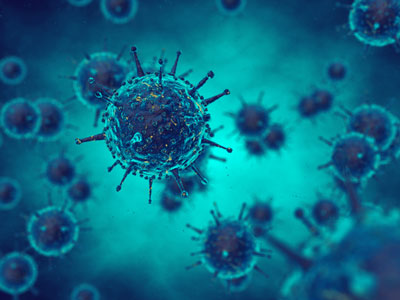Human RSV study launched to aid vaccine development
Posted: 26 August 2015 | Victoria White
A new study will expose healthy adult volunteers to respiratory syncytial virus (RSV), a virus that causes cold-like symptoms in adults…


A new study will expose healthy adult volunteers to respiratory syncytial virus (RSV), a virus that causes cold-like symptoms in adults.
Better understanding of how adults develop RSV infection and immune system responses to infection will assist researchers in developing and testing future antivirals and vaccines to combat the virus. The research is being conducted by the US National Institute of Allergy and Infectious Diseases (NIAID).
RSV is the most common cause of lower respiratory tract infections among young children worldwide. Healthy adults infected with RSV tend to develop cold-like symptoms and recover without any problems, but the infection can cause severe disease in premature infants, children younger than two years with heart or lung problems, children and adults with weakened immune systems, and the elderly.
“Challenge studies such as this are a unique way of enabling scientists to monitor, in a controlled setting, the natural history of a disease in exquisite detail, using the most powerful tools of molecular biology,” said NIAID Director Anthony S. Fauci, M.D. “By studying RSV infection in healthy adults, we hope to improve understanding of how this infection develops and determine the suitability of this particular strain of the virus for use in future RSV vaccine and treatment trials.”
Participants will be monitored daily for signs and symptoms of RSV infection
The NIAID pilot study, led by Lesia K. Dropulic, will enrol up to 60 healthy men and non-pregnant women ages 18-50 years. Study participants will receive a drop of liquid containing RSV in each nostril and will remain hospitalized in isolation for approximately one to two weeks. This is being done both to allow for monitoring of the study volunteers and because RSV is highly contagious.
Medical staff will monitor study participants daily for signs and symptoms of RSV infection and conduct blood draws and sample nasal secretions to intensively study the development of infection. Participants will also have tests to measure how much air they can move in and out of their lungs.
Investigators will use a laboratory-developed strain of RSV commonly used in research called RSV A2. The strain is the first molecularly cloned challenge virus, meaning the RSV A2 study virus originates from a single clone of the virus strain and has been tested to ensure it is not contaminated with other infection-causing pathogens. Once infected with RSV A2, study participants are likely to develop cold-like symptoms, including a runny nose, cough, ear pain, fever, headache, sinus congestion and sore throat. However, because virtually all adults have been infected with RSV during childhood, some study participants may remain completely well. Any volunteers who do become unexpectedly, seriously ill would be medically treated and provided with the standard of care.
NIAID and Johns Hopkins University will analyse participant samples
“We do not anticipate that the healthy, carefully screened adult volunteers in this study will become severely sick from the RSV challenge virus because, in general, healthy adults are repeatedly exposed to RSV in their lives and either remain asymptomatic or develop a mild to moderate cold,” said Dr Dropulic.
NIAID investigators, in collaboration with the Johns Hopkins University School of Public Health, Baltimore, will analyse participant samples to measure levels of virus shedding and immune protection. Participants will be discharged once they have two consecutive negative tests for RSV and no symptoms of RSV-associated respiratory tract illness. All participants are expected to return to the medical centre for two follow-up visits 28 days and 56 days after they were infected. Participants who develop RSV disease will return for a third visit at 180 days so that investigators can assess the durability of immune responses to RSV.
Related topics
Gene Testing
Related conditions
Heart disease
Related organisations
National Institute of Allergy and Infectious Diseases (NIAID)



